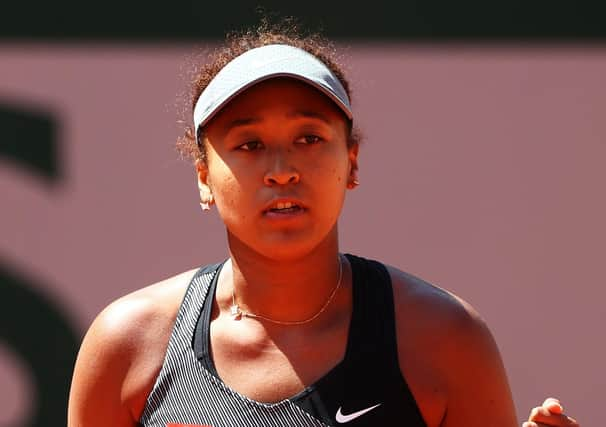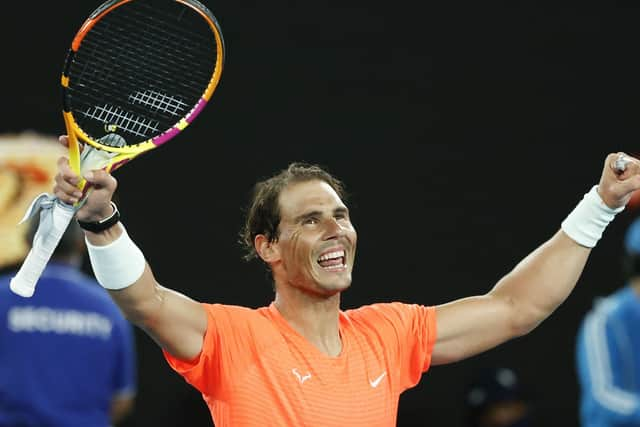Why fronting up to the media can be a double-edged sword for sports ‘stars’ – Chris Waters


It is not personal, it is just that I am not particularly interested in what is usually an inane game of back-and-forth while we try to get some sort of line out of it all and the interviewee tries to oblige while giving away as little as possible.
It is a ritual, an obligation, part and parcel of both sides of the coin, for just as sports writers have to gain player quotes – increasingly so in a media industry obsessed with the cult of celebrity – so sports stars are increasingly required to raise the profile of their sport by dealing with the media.
Advertisement
Hide AdAdvertisement
Hide AdIt was with mixed feelings, therefore, that I followed the story of the Japanese tennis player Naomi Osaka and her decision to withdraw from the French Open after she was fined for not fulfilling her media duties at the competition, citing the effects of her interactions with the press on her mental health.


Although Osaka made it clear that “the tennis press has always been kind to me (and I wanna apologize to all the cool journalists who I may have hurt)”, she revealed that she had suffered “long bouts of depression since 2018” and experiences “huge waves of anxiety before I speak to the world’s media”.
There is no reason why any sports star, cricketing or otherwise, should enjoy doing press conferences any more than we should enjoy having to attend them, so her feelings should be taken at face value.
At the same time, there is a clear danger that others without mental health issues might be tempted to follow suit for the ‘easy life’ rather than front up to the press to explain away their latest duck, own goal, straight sets defeat – much worse any difficult/controversial subject.
Advertisement
Hide AdAdvertisement
Hide AdAmid the inevitable furore, both for and against Osaka’s position, great wisdom poured from the lips of Rafael Nadal.
“I respect her decision,” said the world No 3. “I respect her, of course, as an athlete and her personality. But, for me, without the press and without the people who write the news and the achievements that we are having around the world, we would probably not be the athletes that we are today.
“I don’t think we would have the recognition that we have around the world, and we would not be that popular. I understand her. But, on the other hand, I have my point of view that the media is a very important part of our sport, too.”
Spot on. For the narrative that the media are “the bad guys”, “the enemy”, call it what you will, is as lazy and unenlightened as that which is oblivious to the issue of mental health itself.
Advertisement
Hide AdAdvertisement
Hide AdThat there are good and bad apples in every industry does not need to be highlighted.
Alas, there remains an element of condescension and disrespect towards the media among some sports stars who conveniently forget the profile and exposure that the media gives them, something that the media usually takes with a fawning shrug – witness Kai Havertz’s f-bomb interview with BT Sport after the Champions’ League final last Saturday. Could you imagine Bobby Charlton, say, having done that after the 1966 World Cup final? Of course not. Charlton had respect and recognised that the relationship is a two-way street.
Although I am personally not interested in/cannot remember 99 per cent of the cricket press conferences I’ve attended, I am interested in seeing great cricketers do what they do best – play cricket – and then writing about it, and I would always prefer to come up with my own words/thoughts than report those parroted by others.
Clearly there is a balance, and there are times when player quotes are not only worthwhile but, depending on the subject at hand, desirable/imperative.
Advertisement
Hide AdAdvertisement
Hide AdYes, press conferences may often be dull and tedious for all concerned.
But the sports star who appreciates, like Rafael Nadal, the essential role of the press/media is a bright star indeed.
Comment Guidelines
National World encourages reader discussion on our stories. User feedback, insights and back-and-forth exchanges add a rich layer of context to reporting. Please review our Community Guidelines before commenting.